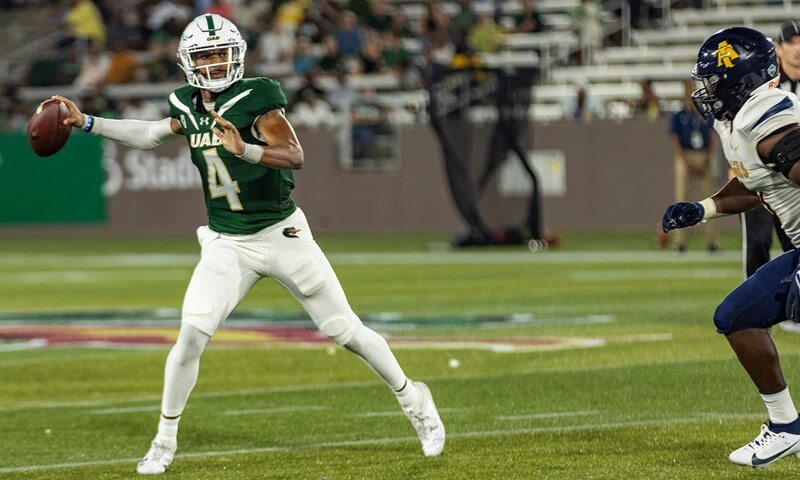Welcome to my blog! I’m coach Levi, and I’m here to share my insights on sports nutrition. From what to eat before a big game to how to refuel after a workout, I’ll be covering everything you need to know to fuel your body for peak performance. So whether you’re a casual athlete or a seasoned pro, stay tuned for some helpful tips and tricks from yours truly.
The importance of sports nutrition
Good nutrition is an important part of any athlete’s training. Eating the right foods helps the athlete to perform at their best and recover quickly from strenuous exercise. Sports nutrition from coach levi post.
There are three main types of nutrients that athletes need to be aware of:
1. Carbohydrates: These are the body’s main source of energy and are found in foods such as bread, pasta, rice, cereal, fruits and vegetables.
2. Protein: Good sources of protein include meat, fish, poultry, dairy products and beans.
3. Fat: Fat is a concentrated source of energy and is found in foods such as nuts, seeds, oils and avocados.
Athletes need to consume adequate amounts of all three types of nutrients in order to maintain peak performance. In addition to healthy eating, athletes also need to make sure they are hydrating properly before, during and after exercise.
The benefits of sports nutrition

The benefits of sports nutrition are many and varied. Proper nutrition can help improve your athletic performance, protect your body from injury, and help you recover from workouts more quickly.
In addition, eating a healthy diet can help you maintain a healthy weight, reduce your risk of chronic diseases such as heart disease and diabetes, and promote overall good health.
If you are an athlete or active individual, it is important to make sure that you are getting enough of the right nutrients to support your activity level. A registered dietitian can work with you to create an eating plan that meets your individual needs.
The best foods for sports nutrition
Choosing the right foods for sports nutrition is important for optimal performance. Check out this list of the best foods for athletes, according to coach Levi:
1. protein-rich foods: chicken, fish, eggs, tofu, dairy, nuts, and seeds
2. carbohydrate-rich foods: oats, rice, quinoa, sweet potatoes, fruits, and vegetables
3. healthy fats: avocados, olive oil, coconut oil, and nut butters
The worst foods for sports nutrition
Eating the wrong foods before or after exercise can Board-certified endocrinologist Scott Isom, M.D., of Weill Cornell Medicine in New York, points to highly processed and sugary foods, as well as those high in unhealthy fats. “A poor diet can lead to weight gain, which puts extra stress on joints and muscles,” explains board-certified allergist Jennifer Caudle, D.O., a professor at Rowan University School of Osteopathic Medicine in Stratford, New Jersey.
aim for foods that are rich in carbs and protein, as well as healthy fats. “Good” carbs include whole grains, vegetables, and fruits; “bad” carbs are refined grains like white bread and pastries. Protein is essential for repairing muscles after a workout; good sources include lean meats, fish, dairy, eggs, and legumes. Healthy fats aid in absorption of vitamins A, D ,E ,and K; they’re found in olive oil ,avocados ,nuts ,and seeds .
The role of sports nutrition in performance

Proper sports nutrition is a critical part of any athletes training regime. What an athlete eats and drinks can impact their performance both in the short and long term. Here, we will take a look at the role of sports nutrition in performance, how it can be used to improve performance, and some of the common mistakes that athletes make when it comes to their diet.
Sports nutrition is not just about calories; it is about consuming the right mix of nutrients to fuel your body for training and competition. A well-planned diet should include all the macro- and micronutrients needed for optimal health and performance. Macronutrients are nutrients that are required in large amounts and include carbohydrates, proteins, and fats. Micronutrients are nutrients that are required in smaller amounts and include vitamins and minerals.
The right mix of macronutrients will differ depending on the sport, the athlete’s goals, and the phase of training or competition. For example, during endurance events like marathons or long-distance cycling races, athletes will need to consume more carbohydrates to replenish glycogen stores and keep their energy levels up. On the other hand, during shorter, higher intensity events like sprinting or weightlifting, athletes may need to increase their protein intake to help repair muscle tissue damage.
In addition to macro- and micronutrients, hydration is also critical for optimal performance. Water is essential for many bodily functions including temperature regulation, transportation of nutrients, waste removal, and lubrication of joints. While every athlete has different hydration needs depending on factors like heat/humidity, exercise intensity, and sweat rate; it is generally recommended that athletes consume at least 500ml (about 17 ounces) of water 2-3 hours before exercise and 250-350ml (about 8-12 ounces) every 15-20 minutes during exercise .
Sports nutrition can be used to improve performance in a number of ways. Proper nutrition can help athletes train harder and longer by providing the energy they need to sustain workouts or by helping them recover faster from workouts or competitions . Nutrition can also help athletes achieve their ideal body composition by manipulating energy intake and/or through strategic use of supplements . And finally, good nutrition practices can help reduce the risk of injury by ensuring that muscles and bones are strong and healthy .
Despite its importance , many athletes do not have a well-planned approach to their diet and end up making common mistakes that can impact their performance . Some common mistakes include not eating enough calories , not consuming enough protein , not drinking enough water , relying too heavily on supplements ,and not accounting for individual nutrient needs .
To avoid these mistakes , work with a registered dietitian or certified sports nutritionist who can develop a personalized plan based on your unique goals ,needs ,and preferences .
The role of sports nutrition in recovery
In order to perform at your best, it is important to understand how sports nutrition plays a role in your overall recovery. A well-designed sports nutrition plan can help you optimize your training, improve your performance, and reduce your risk of injuries.
The role of sports nutrition in recovery is to replenish the energy stores that are used during exercise. It is important to consume the right balance of nutrients in order to promote muscle repair and synthesis. A proper diet will also help to reduce inflammation and promote joint health.
There are three main nutrients that are vital for recovery: carbohydrates, protein, and fat. Carbohydrates are the body’s primary source of fuel and are essential for replenishing glycogen stores. Protein is necessary for repairing and rebuilding damaged muscle tissue. Fat plays a role in regulating hormone levels, reducing inflammation, and providing energy during long bouts of exercise.
It is important to consume a combination of all three nutrients immediately after exercise in order to jumpstart the recovery process. A simple way to do this is by consuming a carbohydrate-rich snack or drink, such as fruit juice or a sports drink, along with a protein-rich food, such as Greek yogurt or a protein bar.
The future of sports nutrition
With the ever-growing popularity of sports and exercise, it is no surprise that the field of sports nutrition is also on the rise. More and more people are looking for ways to optimize their performance and recovery, and many turn to sports nutrition products to do so.
There are a variety of different sports nutrition products on the market, ranging from supplements to energy bars to protein powders. It can be hard to keep up with the latest trends.
One trend that shows no signs of slowing down is the use of plant-based proteins. As more people adopt plant-based diets, they are also looking for plant-based options when it comes to their sports nutrition. Plants offer a multitude of benefits, including being low in calories and fat, and high in essential nutrients like vitamins, minerals, and antioxidants.
Another trend that is gaining momentum is the use of personalized nutrition plans. As our understanding of individual nutritional needs grows. So too does our ability to create tailored plans that meet those needs. This is especially beneficial for athletes who may have specific issues that need to be addressed. Such as food allergies or intolerances, or those who are training for a specific event.
Sports nutrition is an ever-evolving field, and it shows no signs of slowing down anytime soon. With new products and trends constantly emerging, it can be hard to keep up with all the latest developments. But by staying informed and making smart choices. You can ensure that you are getting the most out of your sports nutrition products.
Sports nutrition myths debunked
There are a lot of myths and misconceptions out there when it comes to sports nutrition. As a result, many athletes don’t know what they should be eating and drinking to optimize their performance. Here, coach Levi breaks down some of the most common myths to help you make the right choices for your training and racing.
1. Myth: You need to eat a lot of protein to build muscle
Protein is essential for building and repairing muscle. But you don’t need to eat a huge amount of it to see results. In fact, consuming too much protein can actually be detrimental to your health and performance. The recommended intake for athletes is 1.2-2.0 grams per kilogram of body weight per day.
2. Myth: Carbs are bad for you
Carbs are the body’s main source of energy, so they are essential for fueling training and competition. The recommended intake for athletes is 5-7 grams per kilogram of body weight per day.
3. Myth: Fat is bad for you
However, fat is an essential nutrient that the body needs for many different functions. Fat is a great source of energy and helps to protect the organs and body tissue. The recommended intake for athletes is 0.8-1.5 grams per kilogram of body weight per day.



